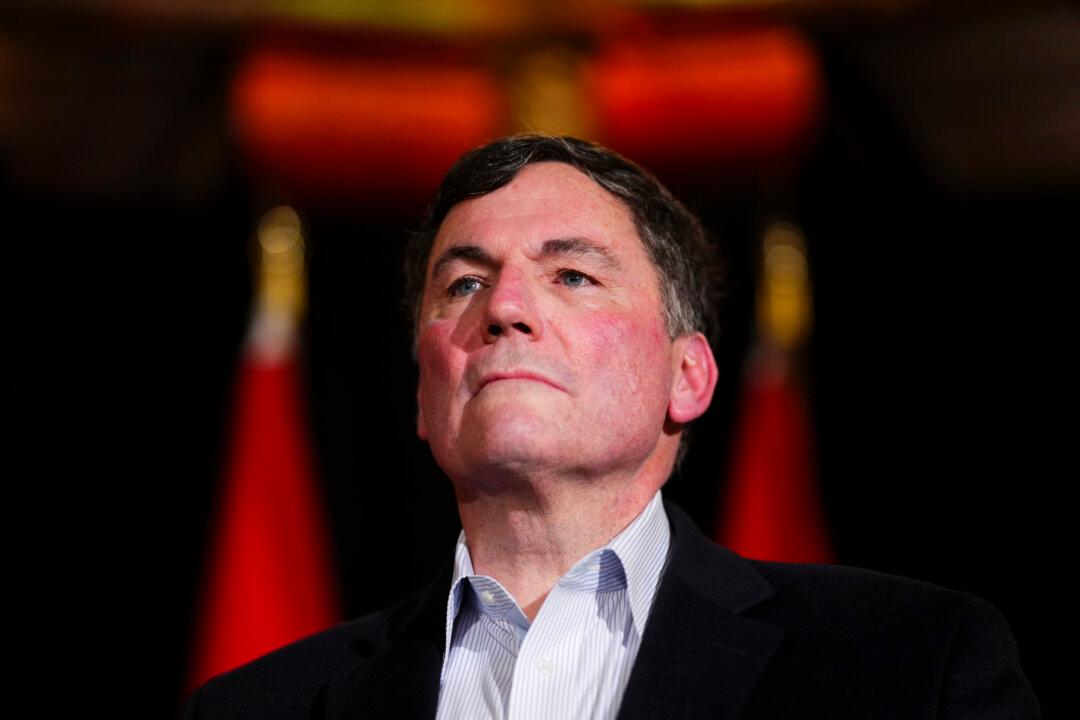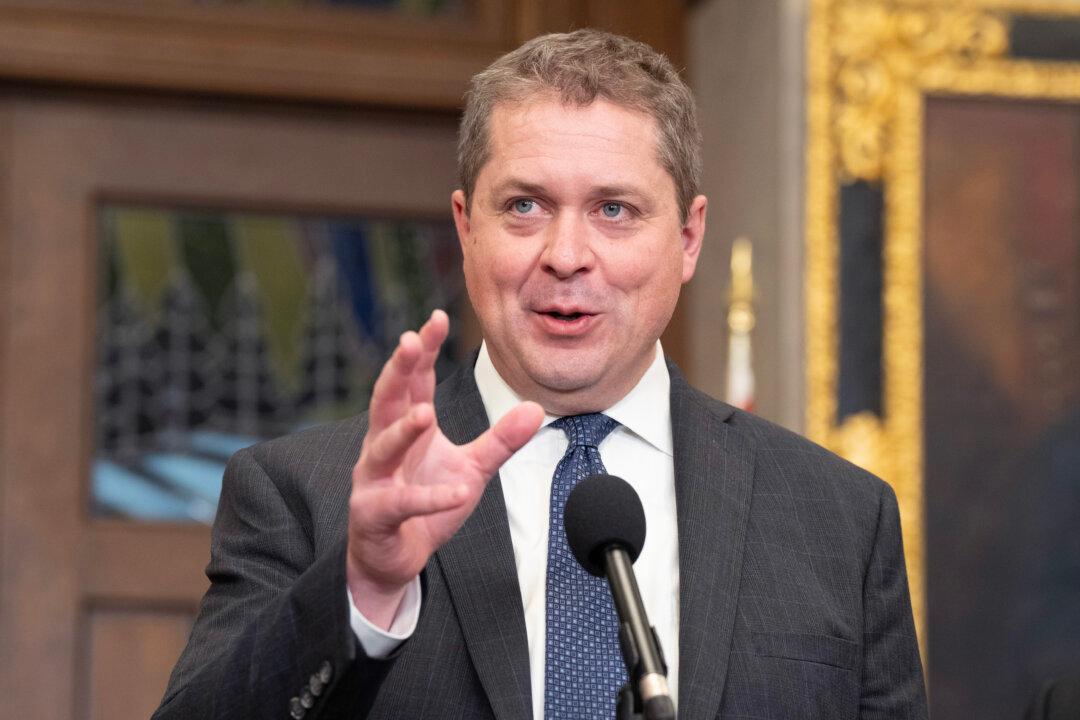Finance Minister Dominic LeBlanc said he’s not focused on discussing retaliation for U.S. tariffs as he visits Washington, D.C., but rather on working on the “economic deal” sought by the U.S. administration.
“What the Americans have said to us privately, and what they’ve said publicly, is that we have a number of weeks to work together,” LeBlanc told reporters on Feb. 12. “And President Trump’s words were very precise; to structure an economic deal with Canada.”





